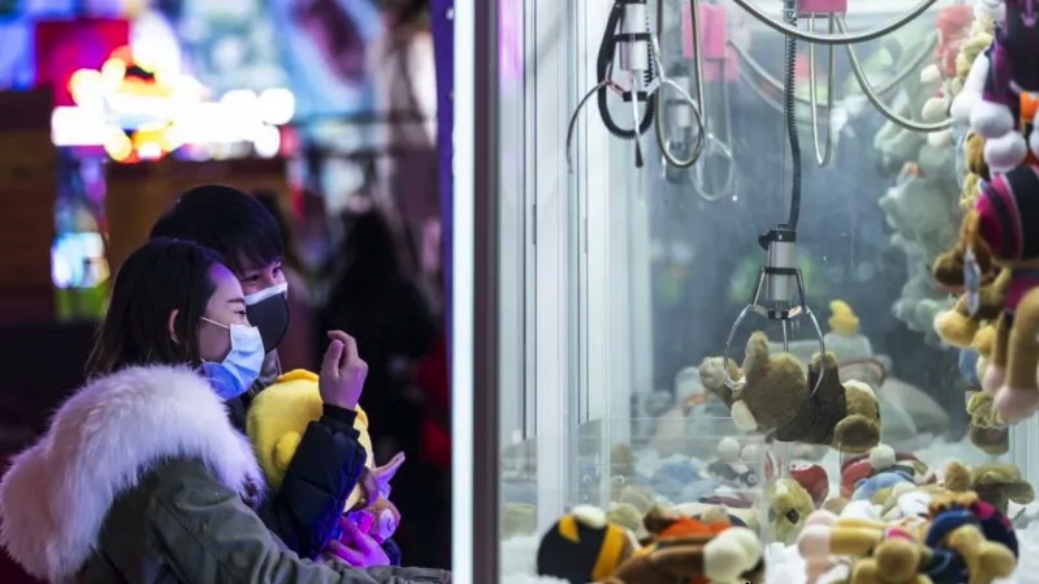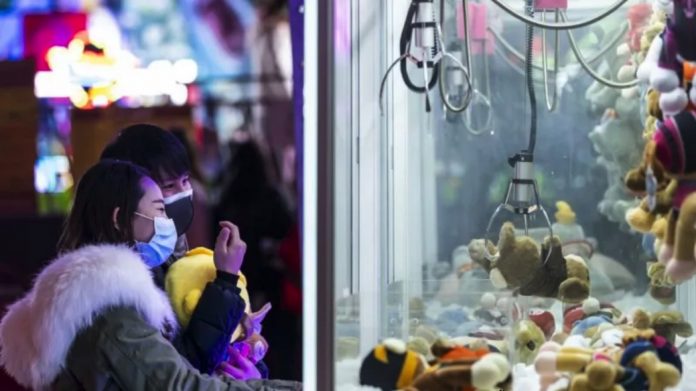ฮ่องกงเตรียมพิจารณามาตรการควบคุมตู้คีบของเล่น หลังมีการร้องเรียนเพิ่มขึ้นเกี่ยวกับความไม่เป็นธรรมในช่วงปีที่ผ่านมา หนึ่งในนั้นคือกรณีชายคนหนึ่งใช้เงินไป 500 ดอลลาร์ฮ่องกงภายใน 45 นาทีเพื่อพยายามคว้ารางวัลเครื่องทำวาฟเฟิล แต่กลับได้เพียงของกระจุกกระจิก
ทางสภาผู้บริโภคฮ่องกงระบุว่าตู้คีบเหล่านี้มักใช้ประโยชน์จากความหวังและความตื่นเต้นของผู้บริโภค พร้อมเตือนให้ประชาชนระมัดระวังและใช้จ่ายอย่างมีสติ แม้ยังไม่มีการระบุแนวทางกำกับดูแลที่ชัดเจน แต่สถิติแสดงว่าจำนวนคำร้องเรียนเพิ่มขึ้นอย่างต่อเนื่องจาก 7 กรณีในปี 2022 เป็น 16 กรณีในปี 2023 และเพิ่มขึ้นเป็น 42 กรณีในปีนี้
ผู้ประกอบการมักปรับตั้งค่าของเครื่องให้การคว้ารางวัลยากขึ้น เช่น การลดแรงจับของกรงเล็บหรือเพิ่มอุปสรรคภายในเครื่อง ซึ่งอาจทำให้ผู้บริโภคไม่พอใจและมองว่าไม่ยุติธรรม ทางสภาผู้บริโภคกล่าวว่าถึงเวลาแล้วที่ควรพิจารณากฎระเบียบในการดำเนินธุรกิจตู้คีบของเล่น ขณะที่เจย์เดนเฉิน ผู้ก่อตั้งบริษัทให้เช่าตู้คีบในสิงคโปร์ ให้ความเห็นว่าความท้าทายในการเล่นตู้คีบเป็นส่วนหนึ่งของความสนุกที่ดึงดูดผู้คน หากมีการควบคุมที่เข้มงวดอาจทำให้เสน่ห์ของเกมลดลง
ในฮ่องกง ผู้ประกอบการไม่จำเป็นต้องมีใบอนุญาตในการตั้งตู้คีบ อย่างไรก็ตาม มีกรณีร้องเรียนหลายครั้งที่สร้างความไม่พอใจ เช่น ชายคนหนึ่งที่เข้าใจว่ารางวัลในเครื่องสามารถเลือกได้แต่กลับพบว่าระบบไม่เป็นไปตามที่คาดหวัง หรือหญิงคนหนึ่งที่พบว่ากรงเล็บมักคลายออกทุกครั้งที่รางวัลใกล้ถึงช่องรับ และต้องใช้เงินตามจำนวนที่กำหนดก่อนระบบจะจับรางวัลได้อย่างมั่นคง นอกจากนี้ยังมีกรณีที่ชายคนหนึ่งพยายามแลกธนบัตรเป็นเหรียญในตู้แต่ได้รับไม่ครบจำนวน และถูกบังคับให้ใช้เงินในรูปแบบรอบการเล่นแทนการคืนเงินสด
สภาผู้บริโภคแนะนำให้ประชาชนพิจารณาว่าเงินที่ใช้จ่ายไปคุ้มค่ากับรางวัลที่ต้องการหรือไม่ และควรบันทึกวิดีโอการเล่นไว้เป็นหลักฐานหากเกิดข้อพิพาท ทั้งนี้ยังเตือนว่าบางตู้คีบอาจถูกใช้ในกิจกรรมการพนัน และขอให้ประชาชนใช้ความระมัดระวัง
Gotta catch ’em all: Hong Kong targets ‘unfair’ claw machines

It’s a frustratingly familiar experience for many a fair-goer: just as the coveted plushie makes its way towards the chute of a claw machine, the claw slackens, letting go of the prize.
But now one city has had enough. On Wednesday, Hong Kong’s consumer watchdog announced it was mulling regulations on claw machines after rising complaints.
One man had spent HK$500 ($64.4; £50.7) over 45 minutes to win a waffle maker but got “nothing more than a few trinkets”, the Consumer Council said.
It said these machines “capitalise on consumers’ enthusiasm for testing their luck” and warned people to “spend rationally and be mindful of addiction”. But it did not say how it would regulate them.
Forty-two complaints were filed in the first 11 months of this year, up from 16 in 2023 and seven in 2022, the Consumer Council said on Monday.
“The industry often modifies claw settings or introduces obstacles inside claw machines to make winning more challenging… Excessive difficulty or unfair settings could aggravate consumers,” the council said in a statement on Monday.
“We believe it’s about time to review whether we should regulate claw machine businesses,” said Gilly Wong Fung-han, the council’s chief executive, said reports.
But Jayden Chen, the founder of a claw machine rental company in Singapore, tells the BBC that programmed claw machines are “actually part of the fun”.
“The players then feel the excitement and adrenaline, and will keep going. If they are winning most of the time, who would try for a second or third time?
“Regulations will kill off the fun element,” Mr Chen said.
In Hong Kong, claw machine operators do not need a license to set up shop.
In the case of the man who bided for the waffle maker, he had used a claw machine that promised “instant prizes” – the waffle maker was among the array of prices displayed and he had believed that consumers should have the right to select their reward.
A woman, who played another claw machine, complained that each time she was about to move her desired toy towards the chute, the claw would slacken, letting go of the toy.
The machine featured a “guaranteed grab” mechanism for players who had spent at least HK$100 without winning – only in their next try would the claw maintain its grip until the toy is extracted. The woman lamented that this was a “dishonest trade practice”.
Reports have shown that claw machines can be programmed to have a strong grip for only part of the time, or for it to drop a prize only after a certain number of tries.
In yet another example given by the council, a third complainant had wanted to break his HK$100 bill into HK$5 coins inside a claw machine arcade. After inserting the bill, however, he received only one HK$5 coin. His request for a refund was denied, and he was instead “compensated” with an equivalent value in play rounds.
The man protested, calling this a case of “forced consumption”, but the operator upheld its decision not to issue a cash refund, saying the coin exchange “incurred operating costs such as bank fees”.
“Consumers should assess whether the total amount spent is worth the value of the desired prize,” it said.
It also advised consumers to video-record their gameplay so that they have some evidence on hand in case of any disputes.
It added that some claw machines are suspected to have been used for gambling activities and urged consumers to exercise caution.
By Kelly Ng, BBC News

















